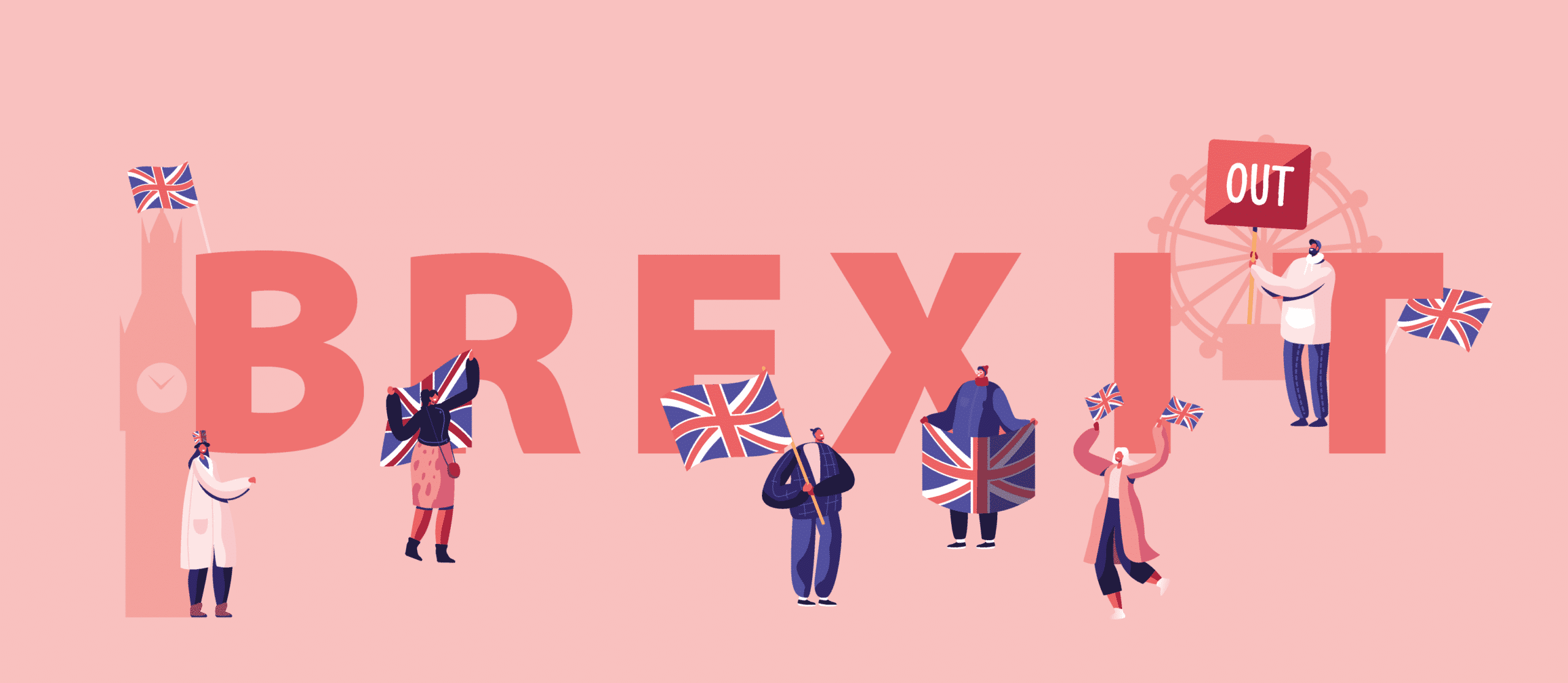The United Kingdom officially left the European Union on February 1st of this year. While the withdrawal agreement is sure to bring changes to how businesses operate, in terms of IP law, no major changes will be taking effect in 2020.
Here is a brief explanation of the upcoming changes that will impact UK IP rights owners, along with useful dates and links.
- The transition period for UK IP rights holders
- How Brexit will affect the different types of IP rights
- Ecommerce platforms that are giving guidelines
The transition period for UK IP rights holders
Until January 2021, there will not be any changes to the current intellectual property system. The services will also remain as is, to ensure the correct management of UK IP rights throughout the process. The EU IP office has released an official statement regarding the impacts of the UK’s withdrawal from the EU, which will be updated when decisions are made during the year.
At the end of the transition period ending in December 2020, the UK IPO stated that they will convert “almost 1.4 million EU trademarks and 700,000 EU designs to comparable UK rights”.
How Brexit will affect different types of IP rights
Trademarks
Once this transition period is over, businesses, organizations or individuals will have nine months to apply for the same protections in the UK. Those holding EU trademarks at the end of the transition period can review updates from the UK IP office here.
Registered community designs (RCD)
During the transition period, rights owners will not need to make any changes. However, from January 2021 onwards, RCDs that were registered in the EU will no longer be valid in the UK. The same timeframe applies here to register your RCD in the UK, 9 months will be given to register community designs in the UK. Find out more here.
Patents
Patents from the European Patent Office will remain the same, as they are protected in more than 30 countries in the European region, including those that aren’t within the European Union (since the non-EU Patent Convention).
Copyright
One major factor to take into consideration is that the UK has, for now, declared that it will not implement a national law that matches the EU copyright directive (Article 13/ 17). Cross-border portability of online content services and reciprocal protection for databases are the only areas in copyright law that have been affected by the Withdrawal Agreement. There will be no changes made during the transition period. The changes made will depend on the future relationship between the UK and the EU. However, there are no major changes to be expected once the transition period is over. Find more information on this here.
Exhaustion of rights
From January 2021, businesses exporting to the European Economic Area (EEA) may no longer be considered exhausted in the EEA. This means that exporting these IP-protected goods from the UK to the EEA (or vice versa) might need authorization from the rights holder. Read further on exhaustion of rights during and after the withdrawal agreement here.
Ecommerce platforms that are giving guidelines
Amazon
Amazon have given guidance to sellers, with a detailed explanation of what it means for businesses, as well as other aspects to take into consideration. They will be updating this page as progress is made on the withdrawal agreement. Find out more here.
eBay
There has been a similar page created by eBay, that will also be continuously updated as more information is given by the UK and the EU. Read what was said here.
The UK government has created a newsletter which will contain all the updates that UK IP rights holders will need to know, here is the link to sign up. There is still a lot of ground to cover in terms of trade, as an agreement between the EU and the UK has not yet been settled. However, the UK government has communicated that exhaustive bureaucracy will be avoided and that fair time periods will be given for submitting applications, to support rights holders in the transition.
For more advice on protecting IP rights after Brexit and through other geopolitical situations, listen to this webinar by our in-house IP expert Bruno Klumpp and Peter Radcliffe from the City of London Police.
(Note: the following webinar was recorded on February 4th 2020. This blog post has since been updated with more information.)






